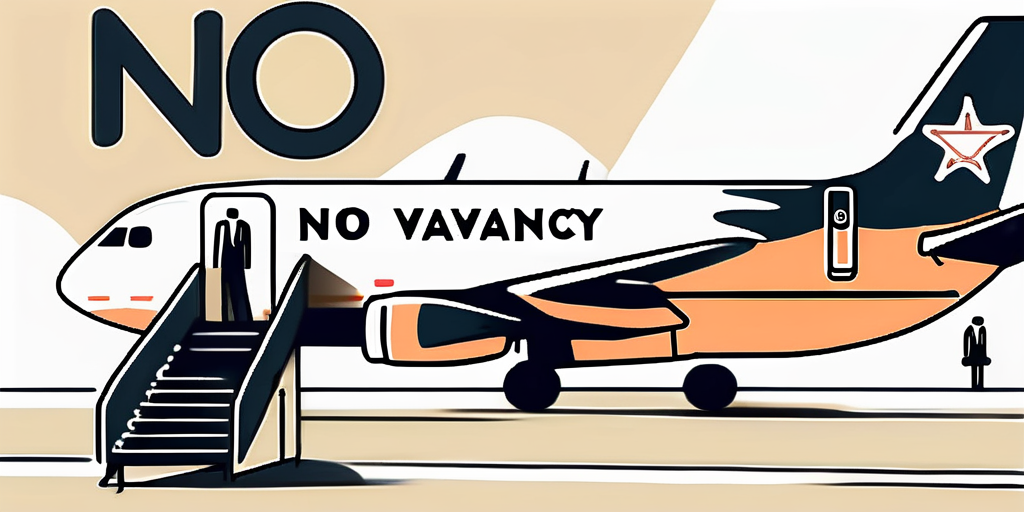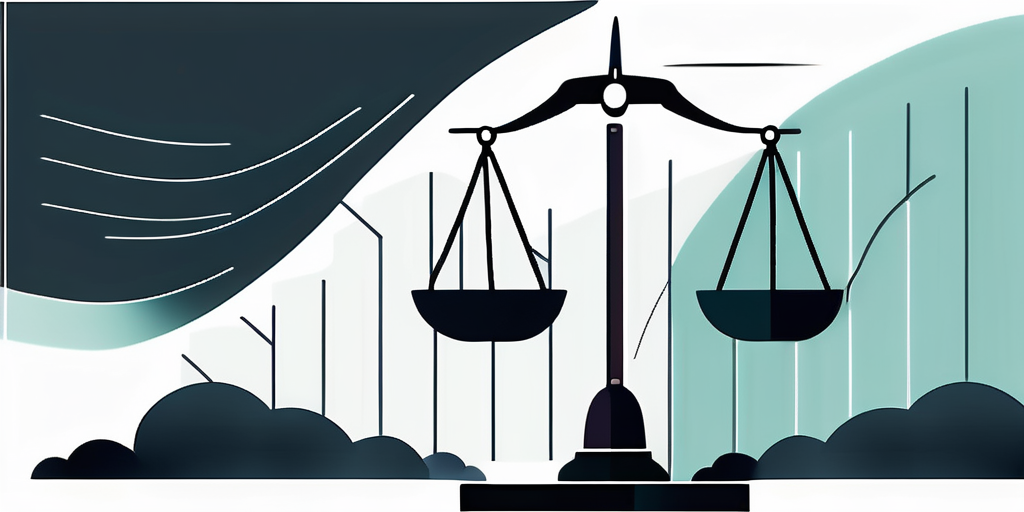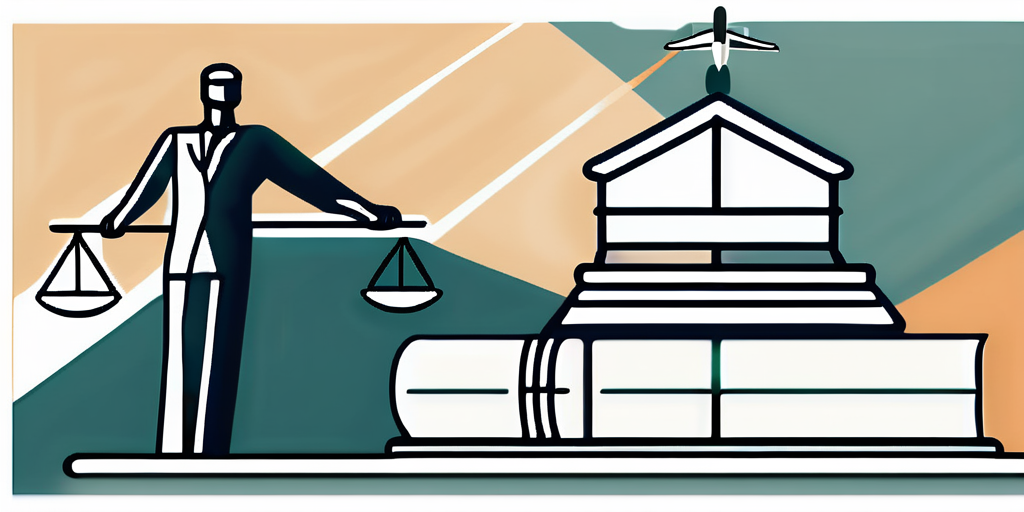Can You Sue an Airline for Overbooking?
Explore legal recourse if you're bumped due to overbooking. Learn about lawsuits, regulations, and how to assert your rights as a passenger.
In recent years, the practice of overbooking flights has become increasingly common in the airline industry. This phenomenon has led many passengers to question their legal rights in the event of being denied boarding due to an overbooked flight. Understanding the ins and outs of overbooking, passenger rights, and the process of suing an airline is crucial for anyone facing this unfortunate situation. In this article, we will explore these topics in detail, providing valuable insights into the legal aspects of overbooking and the potential outcomes of a lawsuit against an airline.
Understanding Overbooking in the Airline Industry
Before delving into the legalities of overbooking, it is essential to grasp the concept itself. Overbooking occurs when airlines sell more tickets for a particular flight than there are available seats. This calculated strategy is implemented to maximize the profitability of an airline by accounting for potential no-shows or cancellations. However, when all passengers show up, the airline faces the predicament of accommodating everyone on the fully booked flight.
 Overbooking is a common practice in the airline industry, with airlines carefully balancing the fine line between maximizing revenue and ensuring customer satisfaction. This practice is not unique to airlines but is also seen in other industries such as hotels and restaurants, where no-shows can impact profitability. By overbooking, airlines aim to achieve optimal flight capacity while also factoring in the unpredictability of passenger behavior.
Overbooking is a common practice in the airline industry, with airlines carefully balancing the fine line between maximizing revenue and ensuring customer satisfaction. This practice is not unique to airlines but is also seen in other industries such as hotels and restaurants, where no-shows can impact profitability. By overbooking, airlines aim to achieve optimal flight capacity while also factoring in the unpredictability of passenger behavior.
What is Overbooking?
Essentially, overbooking refers to the conflict between the number of tickets sold and the limited seating capacity of an aircraft. Airlines meticulously analyze historical data to predict the likelihood of no-shows and cancellations, allowing them to oversell seats on a flight without breaching their contractual obligations.
Moreover, overbooking is a strategic decision made by airlines to manage the inherent volatility in the travel industry. Factors such as weather disruptions, last-minute cancellations, and even operational issues can contribute to the need for overbooking as a risk management tool. By overestimating the number of passengers who will actually board a flight, airlines aim to strike a delicate balance between maximizing revenue and minimizing the impact of unforeseen circumstances.
Why do Airlines Overbook Flights?
Airlines overbook flights to ensure maximum capacity and, consequently, optimize revenue. By overselling seats, airlines mitigate the risk of empty seats due to passenger no-shows or cancellations. This business strategy allows them to balance expenses, as airplane tickets represent a significant portion of their revenue. However, when flights are overbooked, passengers may face the inconvenience of being denied boarding.
Furthermore, the practice of overbooking is not solely driven by revenue considerations but also by operational efficiency. By filling up flights to near capacity, airlines can operate more efficiently, reducing the cost per seat mile and ultimately offering more competitive fares to passengers. This delicate dance of overbooking is a complex interplay of revenue management, customer service, and operational logistics that airlines navigate on a daily basis.
Legal Rights of Passengers in the Case of Overbooking
Passengers facing denied boarding due to overbooking are protected by various legal frameworks. Understanding these rights is crucial in determining whether you have a viable case against an airline.
Overbooking occurs when airlines sell more tickets for a flight than there are available seats. While it is a common practice for airlines to maximize their revenue and account for no-show passengers, it can lead to situations where passengers are involuntarily bumped off a flight.
Passenger Rights Under Federal Law
Passenger rights in the case of overbooking are primarily safeguarded by federal law. The U.S. Department of Transportation (DOT) has set regulations that govern airline practices, including overbooking and passenger compensation. When passengers are involuntarily denied boarding due to overbooking, they are entitled to compensation in the form of monetary compensation or alternative transportation.
Under federal law, the amount of compensation a passenger is entitled to depends on the length of the delay caused by being bumped off a flight. For example, if the airline arranges alternative transportation that arrives at the passenger's destination within one hour of the original arrival time, no compensation is required. However, if the delay is more than two hours (four hours for international flights), the compensation amount increases.
Airline Policies on Overbooking
Apart from federal regulations, individual airlines also have policies in place regarding overbooking. These policies outline the compensation and assistance passengers are entitled to when facing denied boarding. Familiarizing yourself with the specific policies of the airline you are flying with can be crucial in understanding your rights as a passenger.
It's important to note that airlines may ask for volunteers to give up their seats in exchange for compensation before involuntarily denying boarding to passengers. If you find yourself in a situation where the airline is seeking volunteers, carefully consider the offer and ensure you understand the terms before making a decision.
The Process of Suing an Airline
In certain situations, passengers may opt to file a lawsuit against an airline to seek compensation for the inconvenience and potentially punitive damages resulting from overbooking. Before taking this course of action, it is important to understand the appropriate circumstances and steps to take.
 When considering suing an airline, it's crucial to recognize that this can be a complex and time-consuming process that requires careful consideration. Airlines have legal teams that are well-versed in handling such cases, making it essential for passengers to be prepared and well-informed before pursuing legal action. Understanding your rights as a passenger and the relevant laws and regulations can significantly impact the outcome of your case.
When considering suing an airline, it's crucial to recognize that this can be a complex and time-consuming process that requires careful consideration. Airlines have legal teams that are well-versed in handling such cases, making it essential for passengers to be prepared and well-informed before pursuing legal action. Understanding your rights as a passenger and the relevant laws and regulations can significantly impact the outcome of your case.
When Can You Sue an Airline?
Suing an airline is not always the best course of action, as it can be a complex and time-consuming process. However, there are cases where it may be appropriate to pursue legal action. For instance, if an airline consistently fails to adequately compensate passengers for denied boarding due to overbooking, a lawsuit may be justified. Consulting with a legal professional who specializes in aviation law can provide guidance in assessing the merits of your case.
In addition to denied boarding situations, other circumstances that may warrant suing an airline include flight cancellations, lost or damaged baggage, or instances of personal injury during a flight. Each case is unique, and the decision to pursue legal action should be based on a thorough evaluation of the situation and consultation with legal experts.
Steps to Take Before Filing a Lawsuit
Before resorting to legal action, there are several steps passengers should consider taking. Firstly, it is essential to document all relevant details regarding the denied boarding incident. This includes gathering evidence such as boarding passes, ticket receipts, and any correspondence with the airline. Additionally, attempting to resolve the issue through negotiation or filing a complaint with aviation authorities can help to resolve the matter without the need for a lawsuit.
Moreover, exploring alternative dispute resolution methods, such as mediation or arbitration, can provide a less adversarial way to address the issue with the airline. These methods can often lead to a faster resolution and may be less costly than pursuing a lawsuit. Understanding all available options and seeking legal advice can help passengers make informed decisions about how to proceed in seeking compensation from an airline.
Potential Outcomes of a Lawsuit Against an Airline
When contemplating legal action against an airline for overbooking, it is essential to understand the potential outcomes and challenges associated with a lawsuit.
 Embarking on a legal journey against an airline due to overbooking can lead to various potential outcomes that passengers should be aware of. In addition to the possibility of monetary compensation, successful lawsuits can also result in changes to airline policies and procedures to prevent similar incidents in the future. This can have a broader impact on the industry as a whole, promoting better practices and passenger rights.
Embarking on a legal journey against an airline due to overbooking can lead to various potential outcomes that passengers should be aware of. In addition to the possibility of monetary compensation, successful lawsuits can also result in changes to airline policies and procedures to prevent similar incidents in the future. This can have a broader impact on the industry as a whole, promoting better practices and passenger rights.
Possible Compensation for Overbooking
If successful in a lawsuit against an airline for overbooking, passengers may be entitled to compensation for various damages experienced. This can include compensation for inconvenience, additional travel expenses, lost wages, and emotional distress. The specific amount awarded can vary depending on the circumstances of the case.
Moreover, successful legal action can also lead to non-monetary forms of compensation, such as vouchers for future travel, upgrades on future flights, or even public apologies from the airline. These additional gestures can help restore faith in the airline and provide a sense of justice for affected passengers.
Challenges in Suing an Airline
Litigating against an airline can present challenges, as airlines often have extensive legal teams and resources at their disposal. Proving the airline's negligence or misconduct in the case of overbooking can require substantial evidence and legal expertise. Additionally, the legal process itself can be lengthy and arduous, requiring patience and persistence.
Furthermore, navigating the complexities of aviation law and regulations adds another layer of difficulty to suing an airline. Understanding the specific statutes and legal frameworks that govern the industry is crucial for building a strong case and increasing the chances of a successful outcome. This underscores the importance of seeking legal counsel with experience in aviation law when pursuing a lawsuit against an airline.
Alternatives to Legal Action
While the option of suing an airline exists, there are other avenues passengers can explore before resorting to legal action.
Negotiating with the Airline
Engaging in direct negotiation with the airline can be an effective way to resolve issues arising from overbooking. This can involve discussing compensation, upgrades, or alternative travel arrangements directly with the airline's customer service representatives, supervisors, or higher-level management.
Filing a Complaint with Aviation Authorities
If negotiations with the airline prove futile, passengers have the option to file a formal complaint with aviation authorities. These authorities, such as the DOT, oversee airline practices and can investigate and mediate disputes between passengers and airlines. Filing a complaint can bring attention to the issue and potentially result in a resolution.
In conclusion, while the practice of overbooking flights may create inconveniences for passengers, there are legal rights and avenues available to seek compensation and recourse. Understanding these rights, the process of suing an airline, and exploring alternative options can ensure that passengers are well-equipped to address denied boarding due to overbooking effectively.
Get the Compensation You Deserve with ClaimCompass
If you've been inconvenienced by an overbooked flight, don't let your rights as a passenger be overlooked. ClaimCompass specializes in helping air travelers like you claim up to 600€ in compensation for flight disruptions, including overbookings. Our expertise in EU Regulation 261/2004 and our commitment to air passenger rights means we handle everything—from submitting your claim to taking the airline to court if necessary. Use our free compensation calculator to check your eligibility and let us take care of the rest. Remember, there's no fee unless we secure your compensation, so you have nothing to lose by submitting your claim with us today.
